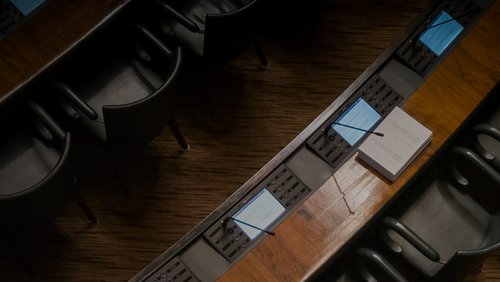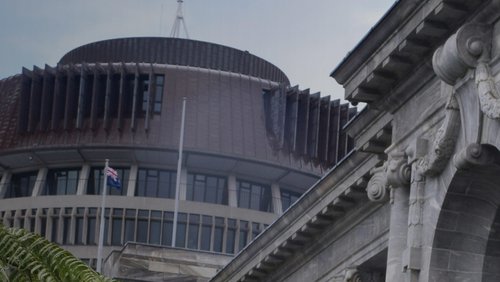14 Jun 2023
Five projects that support a thriving engineering profession have been funded from a pool of $100,000 in the inaugural round of the Engineering New Zealand Foundation Grant Programme.
The recipients are:
- Elizabeth Stewart for research about engineers’ likely career options using data from a world-leading longitudinal study of 900 engineers in Aotearoa New Zealand and Australia
- Marie McCarthy for her He Rau Aroha project to rally Māori leaders from the infrastructure sector to provide pro bono engagement with iwi and communities impacted by Cyclone Gabrielle
- Felicia Indrawidjaja for production of a scripted mockumentary web video series, ENGGEN 101, reflecting the experiences of engineering students at the University of Auckland
- Esther Blain for engineering outreach to female secondary students in Canterbury
- Alyce Lysaght for production capacity on her successful ‘Māori in Engineering’ podcast series.
The Foundation were seeking well-defined projects that would benefit or advance the engineering profession with the potential to enhance diversity and inclusion, acknowledge and reflect Te Tiriti o Waitangi, and raise the profile of engineering in Aotearoa.
“The Trustees were delighted with the variety and innovation shown by all the applicants,” said Foundation chair Helen Davidson. “We are excited by the five projects we have chosen to fund, and the value they will bring towards our vision of a thriving and enduring engineering profession.”
The recipients
Alyce Lysaght, a Graduate Water Engineer at WSP in the office of Te Whanganui a Tara, received $9,620 towards the hosting and production for another year of her popular podcast, Māori in Engineering.
The Trustees commended Lysaght’s application for its plan to continue and develop a proven and successful project that was seen as having influence, community reach, and providing a positive portrayal of the engineering profession through storytelling.
Marie McCarthy (Ngāti Porou (Whanau-a- Ruataupare), Ngāti Whakaue, Ngāti Whitikaupeka, Ngāti Tama (Mokai Patea)), an environmental social scientist, received $40,500 for her He Rau Aroha – Response to Cyclone Gabrielle proposal.
He Rau Aroha will kickstart a process of bringing together Māori working broadly in the infrastructure sector, to engage in pro bono work to assist iwi and their communities in Tairāwhiti region, Te Wairoa, Napier/Hawkes Bay and Northland impacted by Cyclone Gabrielle. It will be supported by Tonkin +Taylor with pro-bono time from participating consultancies Beca, WSP New Zealand (WSP), Stantec, Pattle Delamore Partners (PDP) and Mott MacDonald.
The Trustees commended the polished and well-constructed project application, which was seen as having the potential to kickstart valuable work that will make a real impact on vulnerable communities.
Felicia Indrawidjaja, a fifth-year mechanical engineering and English student at the University of Auckland, received $34,000 to produce ENGGEN 101, a scripted mockumentary web series highlighting the presence of women in the engineering community, increasing the visibility of role models and informing the general public about engineering in a fun and entertaining way.
Felicia has been involved with the Women in Engineering Network (WEN) club at the University of Auckland since her first year. She started with running events to support first year WEN students and went on to create social media content which inspired her project.
The Trustees commended the project application for its clear output, potential breadth and reach, and comprehensive and detailed budget. They noted its focus on youth, and welcomed the ambition and initiative displayed by Felicia and her student team.
Esther Blain, a fourth-year Mechatronics Engineering student and president of the Women in Engineering club at the University of Canterbury | Te Whare Wānanga o Waitaha, received $5,000 for her Women in Engineering High School Outreach programme.
The goal of the Outreach programme is to encourage more female high school students to consider engineering as a career option and is specifically aimed at female students that are underrepresented in the current engineering cohort at the university. This includes Māori and Pasifika students, and female students attending co-ed schools.
The Trustees commended Esther’s application for its development of a successful and proven exercise. The Trustees were pleased to see students applying for the Grant Programme and were enthusiastic about the targeting of Year 9 and 10 students.
Elizabeth Stewart, who has a MSc in Industrial and Organisational Psychology from the University of Canterbury | Te Whare Wānanga o Waitaha received $12,000 over three years for her project Career Trajectories in the Engineering Profession. This initiative will be integrated into her PhD, which will focus on data from the BeLongEng Project led by the project’s other applicant, Enda Crossin, who runs the Engineering Management programmes at the university.
The BeLongEng project is the first prospective longitudinal study of practicing engineers and is the biggest ever study of its type globally, including about 350 engineers who reside in Aotearoa New Zealand.
The Trustees commended the project application for what promises to be a solid and well-defined longitudinal study.
Notes to reporters
The Engineering New Zealand Foundation funds projects and initiatives that support the profession to grow and thrive, today and into the future.
As well as the Grant Programme, the Foundation offers the annual Francis Small Scholarship, hardship and wellbeing assistance to members of Engineering New Zealand and is about to announce a major new funding initiative.
For more information on the Foundation or Grant Programme recipients, contact Lachlan McKenzie or phone 021 479 885.





